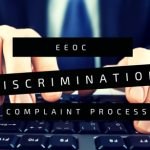When an employee in Texas believes that he/she has been discriminated against, he/she must file a charge of discrimination with the Equal Employment Opportunity Commission (EEOC) and/or Texas Workforce Commission (TWC). A charge of discrimination is an administrative prerequisite to being able to file a lawsuit against an employer based on allegations of discrimination (based on sex, race, age (over 40), race, national origin, disability, or religion) and/or retaliation. While it is always advisable to first discuss your legal options with an employment attorney, some individuals choose to forego legal representation during the charge of discrimination investigation process. It is important that you know your legal rights when the EEOC dismisses your charge of discrimination and issues a Notice of Right to Sue.
When can I file a lawsuit?
Before filing a lawsuit against an employer in federal court, you must obtain a Notice of Right to Sue from the EEOC. This Notice of Right to Sue will be provided either at the conclusion of the EEOC investigation or upon your request after at least 180 days have passed from the date your charge of discrimination was filed. Once you receive the Notice of Right to Sue, you have 90 days to file a lawsuit in federal court. If you miss that deadline, you may be prevented from pursuing your claim.
DO NOT request a right to sue from the EEOC unless (a) you are prepared to file a federal lawsuit within 90 days or (b) you have been advised by an attorney to request the right to sue.
Will the EEOC file a lawsuit on my behalf?
While the EEOC can and does occasionally file lawsuits on behalf of employees to enforce the various federal anti-discrimination laws, I would not recommend holding your breath. In 2017, the EEOC filed a total of only 201 lawsuits on behalf of employees across the entire United States. Keep in mind that the EEOC saw a total of 8,827 charges of discrimination filed during 2017 in Texas alone, and a total of 84,254 charges of discrimination filed across the country. So only 0.2% of all charges of discrimination that are filed with the EEOC end up being pursued by the EEOC in a lawsuit against the employer.
Can I file a lawsuit without an attorney?
While you are not legally required to have an attorney representing you to file a lawsuit in federal court, it is a very risky proposition for you to consider filing a lawsuit pro se (i.e. on your own). There are a number of rules and procedural issues that must be adhered to when filing and pursuing an employment discrimination lawsuit. Violations of these rules/policies can result in penalties and/or sanctions against a party, which can include having your lawsuit dismissed or having to pay the other party’s attorneys’ fees or expenses. Having an employment discrimination attorney retained to represent you in litigation can lessen your exposure to these potentially catastrophic results.
If you do not already have an attorney representing you when you receive a Notice of Right to Sue from the EEOC, the first thing you should do is reach out to an employment discrimination attorney in your area to discuss your claim(s) and the potential for filing a lawsuit.








